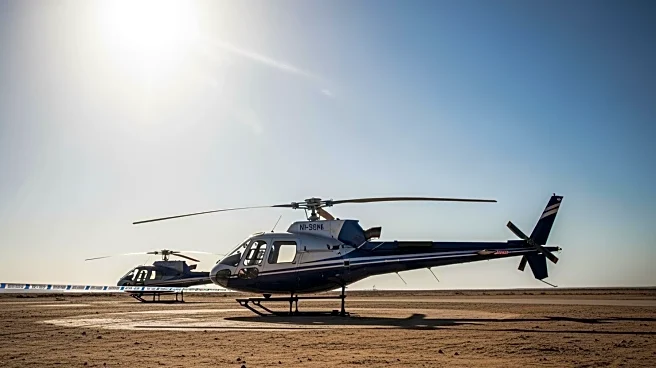What's Happening?
South Africa is under international scrutiny after reports emerged that four demilitarized helicopters exported from the country ended up in Libya, potentially violating the UN arms embargo. The helicopters,
linked to General Khalifa Haftar's Libyan National Army, were exported under civilian registration, bypassing stringent arms control regulations. The incident raises questions about South Africa's enforcement of arms export controls and its growing reputation as a hub for controversial weapons transfers.
Why It's Important?
The export of military helicopters to Libya highlights the challenges in enforcing international arms embargoes and the potential consequences for regional stability. South Africa's involvement in such transactions could damage its international reputation and affect diplomatic relations. The situation underscores the need for robust arms control measures to prevent the diversion of military assets to conflict zones.
What's Next?
South Africa may face international pressure to investigate and address the loopholes in its arms export controls. The government could be required to provide explanations and take corrective actions to prevent future violations. The incident may also prompt reviews of arms export policies and increased scrutiny from international bodies.
Beyond the Headlines
The case highlights the complexities of international arms trade and the ethical considerations involved in exporting military equipment. It raises questions about the effectiveness of global arms control agreements and the responsibilities of exporting nations in ensuring compliance.











